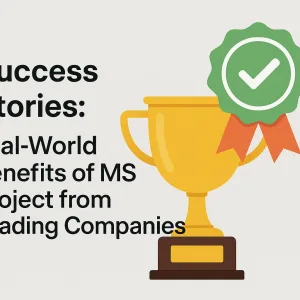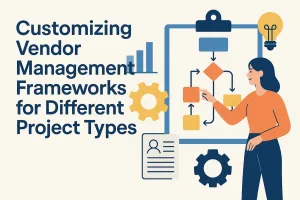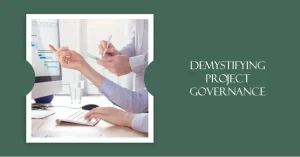Introduction to Expense Tracking in Construction Projects
Expense tracking is a critical component of project management, particularly in the construction industry, where financial oversight can significantly influence project success. It involves the systematic recording and monitoring of all costs associated with a project, ensuring that expenditures align with the established budget. This practice not only aids in maintaining financial control but also enhances decision-making processes throughout the project lifecycle.
The Role of Expense Tracking in Project Management
In the context of construction projects, expense tracking serves several vital functions:
- Budget Adherence: By keeping a close eye on expenses, project managers can ensure that the project remains within its financial limits. This is crucial in construction, where costs can quickly escalate due to unforeseen circumstances.
- Financial Oversight: Accurate expense tracking provides a comprehensive view of all financial transactions, allowing project managers to identify trends, forecast future expenses, and make informed decisions regarding resource allocation.
- Accountability: It establishes a clear record of spending, which is essential for accountability among team members and stakeholders. This transparency helps in building trust and ensuring that all parties are aligned with the project’s financial goals.
Importance of Accurate Expense Tracking in Construction
Accurate expense tracking is particularly important in the construction sector for several reasons:
- Preventing Cost Overruns: Construction projects often face unexpected costs due to delays, material price fluctuations, or labor issues. Effective expense tracking helps in identifying these issues early, allowing for timely interventions to prevent budget overruns.
- Enhancing Profitability: By maintaining a detailed record of expenses, project managers can analyze spending patterns and identify areas for cost savings, ultimately enhancing the project’s profitability.
- Regulatory Compliance: Many construction projects are subject to strict regulatory requirements regarding financial reporting. Accurate expense tracking ensures compliance with these regulations, reducing the risk of legal issues.
Unique Financial Challenges in the Construction Industry
The construction industry presents several unique financial challenges that complicate expense tracking:
- Variable Costs: Unlike many other industries, construction costs can be highly variable, influenced by factors such as labor availability, material costs, and project scope changes. This variability makes it essential for project managers to have robust tracking systems in place to adapt to changing circumstances.
- Multiple Stakeholders: Construction projects often involve numerous stakeholders, including contractors, subcontractors, suppliers, and clients. Coordinating financial information across these parties can be complex, necessitating effective communication and tracking tools.
- Project Complexity: The multifaceted nature of construction projects, which may include various phases and tasks, requires a detailed approach to expense tracking. Each component must be monitored to ensure that the overall project remains on budget.
Unique Challenges of Expense Tracking in Construction
Expense tracking in construction projects presents a unique set of challenges that can significantly impact project management and financial outcomes. Understanding these challenges is crucial for construction project managers and estimators to effectively manage budgets and ensure project success. Here are some of the key challenges faced in this domain:
- Variable Costs Due to Changing Materials and Labor Rates: The construction industry is often subject to fluctuating material costs and labor rates, which can complicate expense tracking. Prices for materials can vary based on market demand, supply chain issues, and economic conditions, making it difficult to maintain accurate budget forecasts. Additionally, labor costs can change due to overtime, skill level requirements, and regional wage differences, further complicating expense management [5][13].
- Complexity of Tracking Expenses Across Multiple Subcontractors and Suppliers: Construction projects typically involve numerous subcontractors and suppliers, each with their own billing practices and timelines. Coordinating and consolidating expenses from various sources can lead to discrepancies and confusion. This complexity requires robust tracking systems and clear communication to ensure that all expenses are accounted for accurately and in a timely manner [1][11].
- Unforeseen Expenses Arising from Project Delays or Scope Changes: Delays in construction timelines or changes in project scope can lead to unexpected expenses. These can include additional labor costs, extended equipment rentals, or increased material prices due to time-sensitive market fluctuations. Project managers must be prepared to adapt their budgets and tracking methods to accommodate these unforeseen costs, which can disrupt financial planning [2][9].
- Seasonal Impacts and Their Influence on Pricing and Labor Availability: Seasonal factors can significantly affect both material pricing and labor availability. For instance, certain materials may be more expensive during peak construction seasons, while labor shortages can occur during high-demand periods. This variability necessitates careful planning and monitoring to ensure that expenses remain within budget throughout the project lifecycle [5][11].
By recognizing and addressing these unique challenges, construction project managers can implement more effective expense tracking strategies, ultimately leading to better financial control and project outcomes.
Best Practices for Effective Expense Tracking
Effective expense tracking is crucial for the success of construction projects, as it directly impacts profitability and project viability. Here are some actionable strategies that construction project managers can implement to enhance their expense tracking processes:
- Establish a Clear and Detailed Budget Prior to Project Commencement: Before starting any construction project, it is essential to develop thorough estimates that encompass all potential costs. This includes labor, materials, equipment, and overheads. A well-defined budget serves as a roadmap for financial management throughout the project lifecycle, helping to prevent overspending and ensuring that all stakeholders are aligned on financial expectations [2][7].
- Implement Regular Expense Reviews and Reconciliations: Regularly tracking project expenses is vital for effective cost management. By conducting frequent reviews and reconciliations, project managers can compare actual costs against the budgeted amounts. This practice helps identify variances early, allowing for timely adjustments to be made to keep the project on track financially [6][10]. Establishing a routine for these reviews can significantly enhance financial oversight and accountability.
- Utilize Standardized Coding for Expenses to Streamline Tracking: Implementing a standardized coding system for expenses can greatly improve the efficiency of expense tracking. By categorizing expenses consistently, project managers can easily analyze spending patterns and identify areas where costs can be reduced. This approach not only simplifies the tracking process but also facilitates better communication among team members regarding financial matters [4][12].
- Train Team Members on Expense Tracking Processes and Software: Ensuring that all team members are well-versed in the expense tracking processes and the software tools being used is critical for success. Providing training sessions can help team members understand their roles in financial management and how to utilize technology effectively. This investment in training can lead to more accurate data entry, better compliance with tracking protocols, and ultimately, improved financial outcomes for the project [3][14].
By implementing these best practices, construction project managers can navigate the unique challenges of expense tracking in the industry, leading to more successful project outcomes and enhanced profitability.
Tools and Technologies for Expense Tracking
In the construction industry, effective expense tracking is crucial for maintaining budget control and ensuring project profitability. The unique challenges faced by construction project managers and estimators necessitate the use of specialized tools and technologies. Here, we explore various options available for expense tracking in construction projects, highlighting their features and benefits.
Overview of Project Management Software with Expense Tracking Features
Project management software has evolved to include robust expense tracking functionalities tailored for the construction sector. These platforms allow project managers to:
- Segment Project Budgets: By dividing projects into phases or components, managers can collect performance data for each segment, facilitating better financial oversight and future assessments [1].
- Real-Time Cost Monitoring: Many software solutions offer real-time visibility into expenses, enabling project managers to track costs as they occur. This immediate access to financial data helps in making timely decisions and adjustments [5].
- Comprehensive Management: Some tools provide an all-in-one solution that integrates project management, budgeting, and expense tracking, streamlining the overall management process [10].
Benefits of Mobile Apps for Real-Time Expense Entry and Monitoring
Mobile applications have become increasingly popular in the construction industry for their convenience and efficiency. Key benefits include:
- Instant Expense Reporting: Project managers and field workers can enter expenses on-the-go, ensuring that all costs are recorded promptly and accurately. This reduces the risk of lost receipts and forgotten expenses [6].
- Enhanced Communication: Mobile apps facilitate better communication between team members, allowing for quick updates and approvals related to expenses, which is essential in a fast-paced construction environment [12].
- User-Friendly Interfaces: Many mobile expense tracking apps are designed with intuitive interfaces, making it easy for users to navigate and input data without extensive training [6].
Integration Capabilities with Accounting Software
The ability to integrate expense tracking tools with existing accounting software is a significant advantage for construction project managers. This integration allows for:
- Streamlined Financial Processes: By connecting expense tracking tools with accounting systems, project managers can automate data transfer, reducing manual entry errors and saving time [8].
- Comprehensive Financial Reporting: Integrated systems provide a holistic view of project finances, enabling better analysis and reporting capabilities. This is crucial for identifying cost-saving opportunities and ensuring projects remain within budget [12].
- Improved Compliance and Audit Trails: Integration helps maintain accurate records for compliance purposes, making it easier to prepare for audits and financial reviews [8].
Case Studies of Successful Tool Implementation in Construction Expense Tracking
Several construction firms have successfully implemented expense tracking tools, showcasing the effectiveness of these technologies:
- Case Study 1: A mid-sized construction company adopted a project management software that included expense tracking features. By segmenting their project budgets and utilizing real-time monitoring, they reduced their overall project costs by 15% within the first year of implementation [1][10].
- Case Study 2: A large construction firm integrated a mobile expense tracking app with their accounting software. This integration allowed for instant expense reporting from the field, leading to a 30% decrease in administrative time spent on expense management [6][8].
- Case Study 3: Another company utilized a comprehensive project management tool that provided detailed financial reporting capabilities. This enabled them to identify inefficiencies in their spending, resulting in a 20% increase in project profitability [12][10].
Real-Life Examples of Successful Expense Tracking
Effective expense tracking is crucial in the construction industry, where projects often face unique challenges such as fluctuating costs, unexpected delays, and the need for precise budget management. Here, we explore real-life examples of construction projects that have successfully managed their expenses, highlighting the impact of effective tracking on project outcomes and profitability, along with insights from industry professionals.
Case Study 1: Turner Construction Company
Turner Construction Company implemented robust cost tracking practices that significantly improved their project management. By adopting a systematic approach to job costing, they were able to:
- Enhance Cost Control: The company utilized detailed cost codes and real-time tracking systems, which allowed them to monitor expenses closely and make informed decisions throughout the project lifecycle. This proactive approach led to a reduction in project delays and an increase in overall profitability [8].
- Increase Profitability: By analyzing the differences between expected and actual costs regularly, Turner was able to identify areas for improvement and adjust their strategies accordingly, resulting in better financial performance across multiple projects [15].
Case Study 2: Skanska USA
Skanska USA, a leading construction firm, adopted advanced cost tracking software that transformed their expense management processes. Key outcomes included:
- Accurate Cost Allocation: The software enabled Skanska to allocate costs accurately across various project phases, ensuring that budget overruns were minimized. This level of detail in expense tracking helped them maintain financial discipline and transparency [8].
- Improved Project Outcomes: With effective tracking, Skanska was able to deliver projects on time and within budget, which not only satisfied clients but also enhanced their reputation in the industry [8].
Insights from Industry Professionals
Industry professionals emphasize the importance of learning from successful expense tracking implementations. Here are some key lessons learned:
- Establish Clear Checkpoints: Implementing specific checkpoints throughout the project can help in monitoring expenses effectively. This method allows project managers to assess financial health at various stages and make necessary adjustments [12].
- Utilize Technology: Leveraging tools like Trello or Asana for expense tracking can streamline the process. These platforms allow project managers to create dedicated boards for each project, attach receipts, and set budget limits, which enhances visibility and accountability [4].
- Continuous Improvement: Professionals recommend regularly reviewing and refining expense tracking practices. By analyzing past projects, teams can identify what worked well and what didn’t, leading to improved strategies for future projects [15].
Conclusion and Future Trends in Expense Tracking
Effective expense tracking is crucial for the success of construction projects, as it directly influences budget management and overall project viability. With statistics indicating that nearly 70% of construction projects exceed their budget by more than 10%, the need for meticulous expense tracking becomes even more apparent [1]. By implementing robust tracking systems, project managers can identify areas of overspending, adjust budgets accordingly, and ensure that projects remain financially healthy [9].
As the construction industry evolves, emerging technologies such as artificial intelligence (AI) and machine learning are poised to revolutionize expense tracking. These technologies can automate data collection and analysis, providing real-time insights into project costs. For instance, AI can help predict potential budget overruns by analyzing historical data and current spending patterns, allowing project managers to take proactive measures [4]. Additionally, machine learning algorithms can enhance cost estimation accuracy by learning from past projects, thereby improving future budgeting processes [8].
To stay competitive in this rapidly changing landscape, construction project managers and estimators must prioritize ongoing education and adaptation to new tools and practices. Embracing innovative expense tracking solutions not only streamlines project management but also fosters a culture of continuous improvement within teams. As the industry continues to integrate advanced technologies, those who invest in learning and adapting will be better positioned to navigate the complexities of construction project management successfully.
In summary, effective expense tracking is not just a best practice; it is a fundamental component of successful construction project management. By leveraging emerging technologies and committing to continuous learning, professionals in the construction sector can enhance their expense tracking capabilities, ultimately leading to more successful project outcomes.
Find out more about Shaun Stoltz https://www.shaunstoltz.com/about/.
This post was written by an AI and reviewed/edited by a human.


